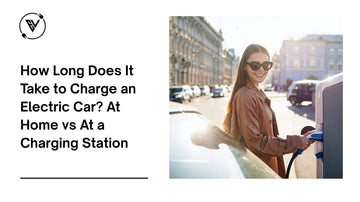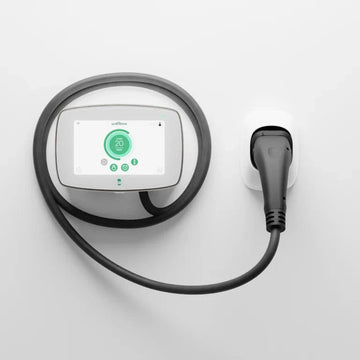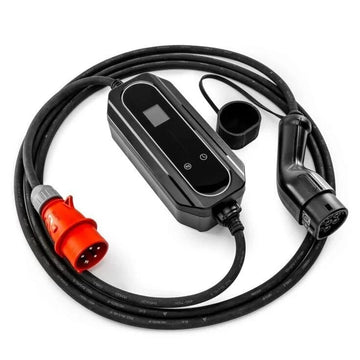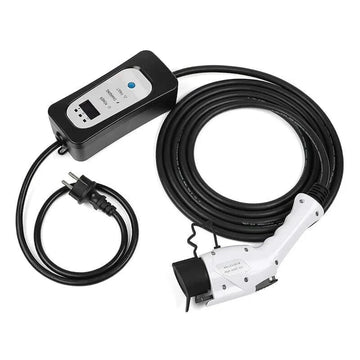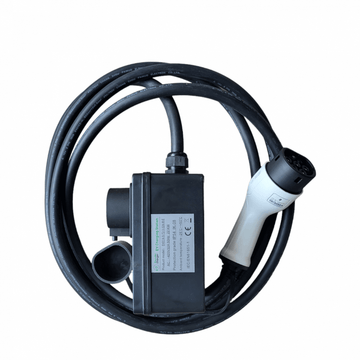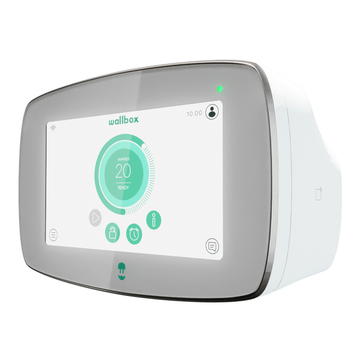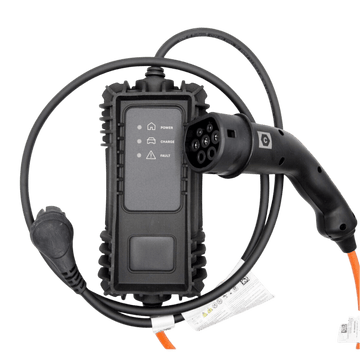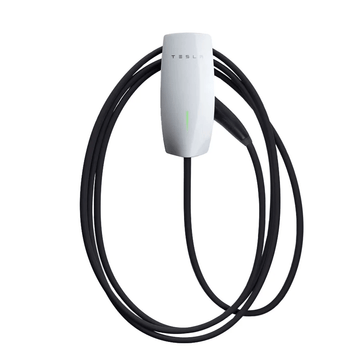Charging an electric car means filling its battery with electricity, like how you charge your phone or tablet. Instead of gasoline, electric vehicles (EVs) use electric power to run. You can plug your EV into a wall outlet, a special home charger, or a public charging station. The time it takes to charge depends on many things like the charger, battery size, and the car itself.
So, how long does it take to charge an electric car? That depends. Some EVs can charge in just 20 minutes with special ultra rapid chargers. Others might take 8 to 12 hours at home. If you’re using a regular plug, it might even take more than a day! Most people charge their car overnight at home with home chargers or top it up a little bit during the day at public charging stations. If you want a short answer: it can take 30 minutes to over 12 hours, depending on the setup.
How Long Does It Take to Fully Charge an Electric Car?
The speed varies based on if you charge your EV at home or not.

At Home
Most people charge their EVs at home because it's easy and convenient. You just plug it in overnight and it’s ready the next day. If you use a regular wall socket (which has low power), charging a typical electric car from empty to full can take 20–30 hours! That’s very slow.
Instead, many people install EV home chargers that are way faster. The most common home charger is 7kW, and that usually takes 8–12 hours to fully charge. If your house has three phase power, you can install a 22kW home charger which can charge your car in just 3–6 hours.
At a Charging Station

Public chargers are much faster. These are found at shopping malls, car parks, gas stations, and retail parks. Some are fast chargers (22kW), and others are rapid chargers (50kW to 150kW) or even ultra rapid chargers (over 150kW).
So, how long does it take to charge an electric car at a public charging station? A rapid charging station can give you an 80% charge in about 30–60 minutes. Ultra rapid charging can do it in just 15–30 minutes!
How Fast Do Electric Cars Charge?
Charging speed depends on the power output of the charger and the vehicle's max charge rate. That means even if you plug into a super powerful charger, your EV might not be able to use all that power. For example, a Nissan Leaf charges slower than a Tesla Model Y because it has a smaller max charge rate.
Also, some charging cables affect how fast you can charge. Using the right cable and charger matters a lot.
What Are the Different Charger Types and Their Speeds?
Here’s a handy guide to help you understand all the types of EV chargers
Level 1 (Slow Charging)
- Uses a regular wall charger outlet
- Power: 2kW–3kW
- Charging time: 20–30 hours for full charge
- Not recommended unless you have no other option
Level 2 (Fast Charging)
- Used for home and public chargers
- Power: 7kW–22kW
- Charging time: 4–12 hours depending on battery size
- Requires type 2 charging cable or type 1 to type 2 charging cables
Level 3 (Rapid and Ultra Rapid Charging)
- Uses direct current (DC)
- Power: 50kW–350kW
- Charging time: 15–60 minutes
- Found at highway stations and large public chargers
Why Does Charging Speed Vary?
There are many reasons what charging speed is affected by:
- Battery size: Bigger batteries take longer to fill
- Charger power: 22kW is faster than 7kW
- Car’s maximum charging rate: If your car only takes 11kW, even a 50kW charger won’t help
- Battery temperature: Cold weather slows charging down
- Battery level: Faster from 20% to 60%, then slows down
- Driving conditions: A hot or cold battery from recent driving affects the speed
- Charger quality: Not all chargers are created equal!
Environmental factors like outside temperature, wind and cold weather also slow down charging. And especially in winter.
Partial Charges or Top-Ups (e.g., 20–80%)
Many EV drivers don’t charge from 0% to 100% every time. Instead, they charge from 20% to 80%, which is faster and better for the car’s battery.
Charging from 20% to 80% can take just 20–40 minutes with a rapid charger. With a home charger, it might take 4–6 hours. This is why a lot of people charge overnight or just top up at charging points during the day while shopping.
How Much Range Do You Get Per Hour of Charging?
Here’s how many miles of range you can expect to add per hour, based on charger type:
- 3kW (slow): ~10 miles/hour
- 7kW (home charging): ~25–30 miles/hour
- 22kW (fast): ~60–90 miles/hour
- 50kW (rapid charging): ~150 miles/hour
- 150kW+ (ultra rapid charging): ~200–300 miles in 30 minutes
But remember, these are estimates and may vary by car model.
Is Home Charging Enough for Daily Use?
Yes! Most people find home charging is all they need. The average person drives less than 40 miles per day, which is easy to cover overnight.
If you install a home charger you can wake up every morning with a full (or mostly full) battery. For most people this means they don’t even need to use public charging unless they go on a road trip.
How Can I Calculate Charging Time Myself?
Want to know how long to charge an electric car? Use this simple formula:

Charging time = Battery size (kWh) ÷ Charger power (kW)
Example: If your EV battery is 60kWh and your charger is 7kW then:
60 ÷ 7 = ~8.5 hours
Just make sure to check your cars maximum charging rate, because charging with a 22kW charger won’t help if your car can only handle 11kW.
Need help setting up your charger? Read this guide on EV charger installation cost and how to choose the right one.
Why Limit Charging to Only 80%?

You might be wondering, why not always charge to 100%? Well, most EV manufacturers suggest stopping at 80% unless you really need the extra range. That’s because charging above 80% takes longer and puts stress on the battery, especially during fast charging.
Some Tesla charging cables and smart systems automatically stop at 80 percent. It's better for battery health and helps your car last longer.
Charge an EV Without Stress
So, how long does it take to charge an electric car? Well, it depends! The electric car charge time can be as quick as 15 min or as long as 30 hours, depending on the charger, the battery, and many other things. Charging at home is slow but perfect for overnight use. Public charging stations are great when you're in a hurry.
To make charging easier and faster, use the right equipment. Whether you need type 1 charging cables, a type 1 to type 2 adapter, or a full EV wall charger, the right choices makes a big difference.
Most drivers quickly learn how to manage their charging time and range. With a little practice and planing, it’s easy to drive an electric vehicle every day - even with just home charging.

